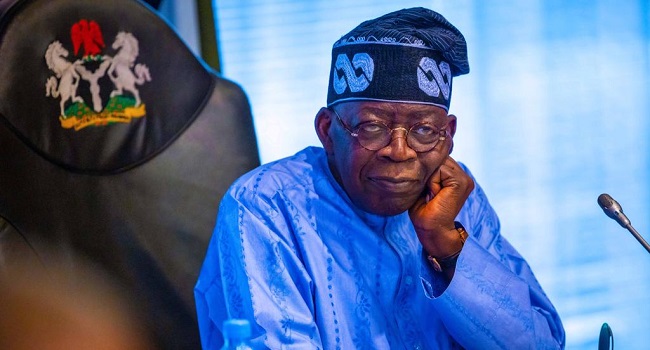Paragraph 1: ACF’s Scrutiny of Tinubu’s Administration
The Arewa Consultative Forum (ACF), a prominent northern Nigerian socio-political organization, has announced its intention to establish a special committee tasked with evaluating the impact of President Bola Tinubu’s policies, projects, and programs on the northern region. This initiative comes ahead of the 2027 general elections and underscores the ACF’s commitment to safeguarding the interests of northern Nigeria. The committee’s mandate will involve conducting a comprehensive analysis of the Tinubu administration’s governance, aiming to ensure that the voices and needs of the North are not marginalized in national affairs. This move reflects the ACF’s belief in the principle of local politics, emphasizing that their allegiance lies not with specific politicians or parties, but rather with those who prioritize and protect the region’s interests.
Paragraph 2: Premature Election Focus and Northern Nigeria’s Strategic Position
The ACF chairman, Alhaji Bashir Dalhatu, has criticized the perceived premature focus on the 2027 elections, arguing that it distracts from the responsibilities and mandate of elected officials. He emphasized that northern Nigeria is closely monitoring the actions of elected and appointed officials, especially at the federal level. Dalhatu expressed confidence in the North’s capacity to compete and excel within Nigeria and the broader African continent, highlighting its significant demographic and political weight. The North comprises 19 out of 36 states, including the Federal Capital Territory (FCT), and holds a majority in the Senate, House of Representatives, National Economic Council, and Council of States. This dominance, along with the North’s vast land area and significant population, positions it as a key player in national affairs.
Paragraph 3: Condemnation of Hostility and Violence Against Northerners in the South
The ACF has strongly condemned the escalating hostility and violence directed towards northerners residing or conducting business in southern Nigeria, particularly in the Southeast. Dalhatu described the situation as "deeply regrettable" and "painful," demanding swift action to address this concerning trend. He highlighted the stark contrast between the North’s historical openness and hospitality towards people from all regions and the alleged lack of reciprocity in the South. Dalhatu lamented the reported difficulties northerners face in acquiring land in some southern areas and the violence they allegedly endure while traveling or residing there. He characterized this situation as a "tragedy" reflecting a dangerous imbalance within the Nigerian federation.
Paragraph 4: Alleged Discriminatory Policies and Growing Disenchantment in the North
The ACF chairman linked the hostility towards northerners in the South to what he termed "discriminatory federal policies," arguing that these policies exacerbate frustration and alienation among northerners. This sentiment, according to Dalhatu, is fueling rising disenchantment and questioning the relevance of the continued union among some in the North. He called for a reassessment of these policies to address the underlying grievances and promote national unity. The ACF’s concerns extend beyond inter-regional tensions to encompass other pressing issues, including worsening insecurity in northern Nigeria, the urgent need for land reforms, and alleged injustices faced by the indigenous people of the FCT.
Paragraph 5: Call for Land Reforms and Addressing Injustices in Abuja
Dalhatu called upon northern governors and legislators to implement land ownership reforms to prevent northerners from becoming "landless in their own territory," citing concerns about increasing land grabs by foreign interests. He urged them to act decisively to protect the region’s land resources and ensure its people’s continued access to land. Regarding Abuja, Dalhatu raised the issue of the alleged displacement and dispossession of the indigenous people, demanding that the federal government fulfill its obligations, including the creation of a separate state for them within the federation. This demand reflects the ACF’s commitment to addressing historical injustices and ensuring equitable treatment for all Nigerians.
Paragraph 6: ACF’s Multifaceted Agenda
The ACF’s pronouncements reflect a multifaceted agenda focused on protecting and promoting the interests of northern Nigeria. The planned evaluation of the Tinubu administration’s impact, the condemnation of violence against northerners in the South, the call for land reforms, and the advocacy for the indigenous people of Abuja all underscore the ACF’s commitment to addressing a range of critical issues affecting the region. These initiatives highlight the organization’s ongoing role in shaping the political and social landscape of Nigeria and advocating for its vision of a just and equitable society. The ACF’s proactive stance indicates a determination to hold the government accountable and ensure that the North’s voice is heard and its needs are addressed in the national discourse.


